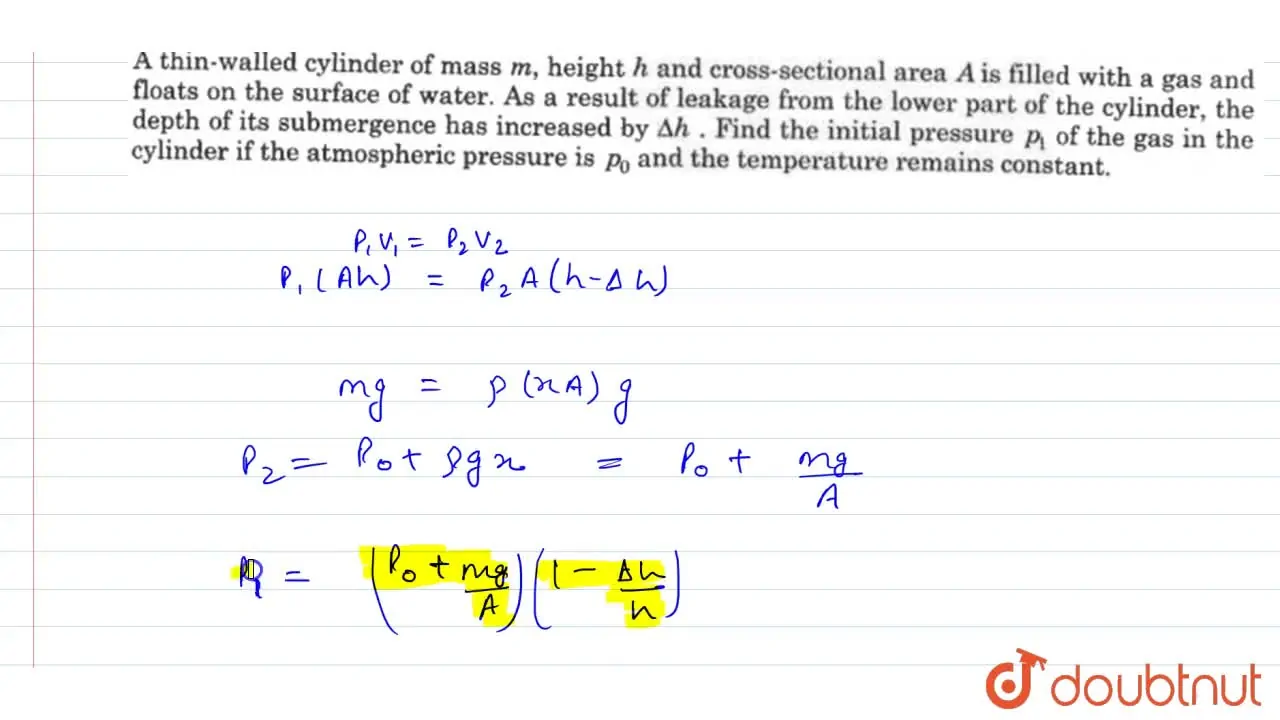A thin - walled cylinder of mass (m), height (h) and cross- sectional area (A) is filled with a gas and floats on the surface of water. As a result of leakage from the lower part of the cylinder, the depth of its submergence has increased byΔh. Find the initial pressure p1 of the gas in the cylinder if the atmospheric pressure is p0 and the temperature remains constant.
[(P0+mgS)(1−Δhh)]
Related Playlists
- BOOK - PHYSICS GALAXY - ASHISH ARORACHAPTER - Kinetic Theory of Gases and Gas LawsEXERCISE - Advance MCQs with One or More Options Correct15videos
Kinetic Theory of Gases and Gas Laws
- BOOK - PHYSICS GALAXY - ASHISH ARORACHAPTER - HEAT TRANSFER EXERCISE - Unsolved Numerical Problems for Preparation of NSEP,INPhO&IPhO66videos
HEAT TRANSFER
- BOOK - PHYSICS GALAXY - ASHISH ARORACHAPTER - MAGNETIC EFFECTS OF CURRENT AND MAGNETISMEXERCISE - U.N.P79videos
MAGNETIC EFFECTS OF CURRENT AND MAGNETISM
Similar Questions
A vessel is filled with an ideal gas at a pressure of 10 atmospheres and temp 270C. Half of the mass of the gas is removed from the vessel the temperature of the remaining gas is increased to 870C. Then the pressure of the gas in the vessel will be
View SolutionAs shown , a piston chamber pf cross section area A is filled with ideal gas. A sealed piston of mass m is right at the middle height of the cylinder at equilibrium. The friction force between the chamber wall and the piston can be ignored . The mass of the rest of the chamber is M.The atmosphere pressure is P0. Now slowly pull the piston upwards , find the maximum value of M such that the chamber can be lifted off the ground. The temperature remains unchanged.
_E01_049_Q01.png) View Solution
View SolutionA cylindrical tube of uniform cross-sectional area A is fitted with two air tight frictionless postion.
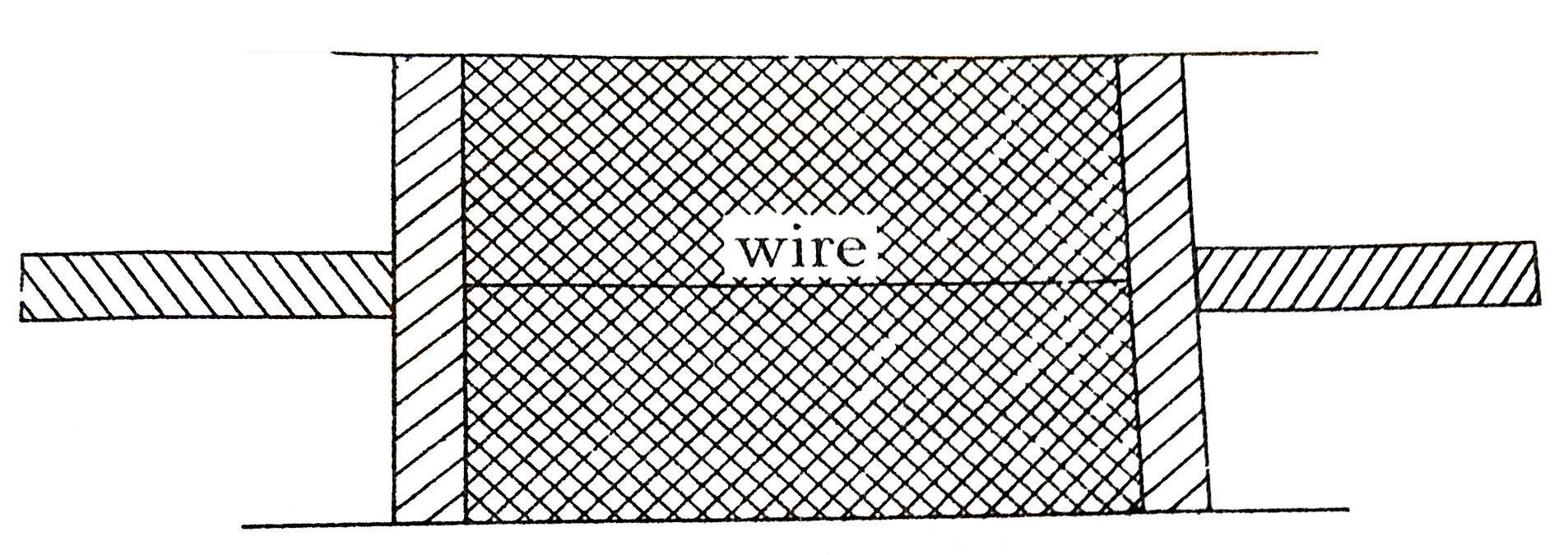 The pistons are connected to each other by a metallic wirte. Initially the pressure of the gas is po and temperature is To, atmospheric pressure is also po Now the temperature of the gas is increased to 2T0, the tension in the wire will be View Solution
The pistons are connected to each other by a metallic wirte. Initially the pressure of the gas is po and temperature is To, atmospheric pressure is also po Now the temperature of the gas is increased to 2T0, the tension in the wire will be View Solution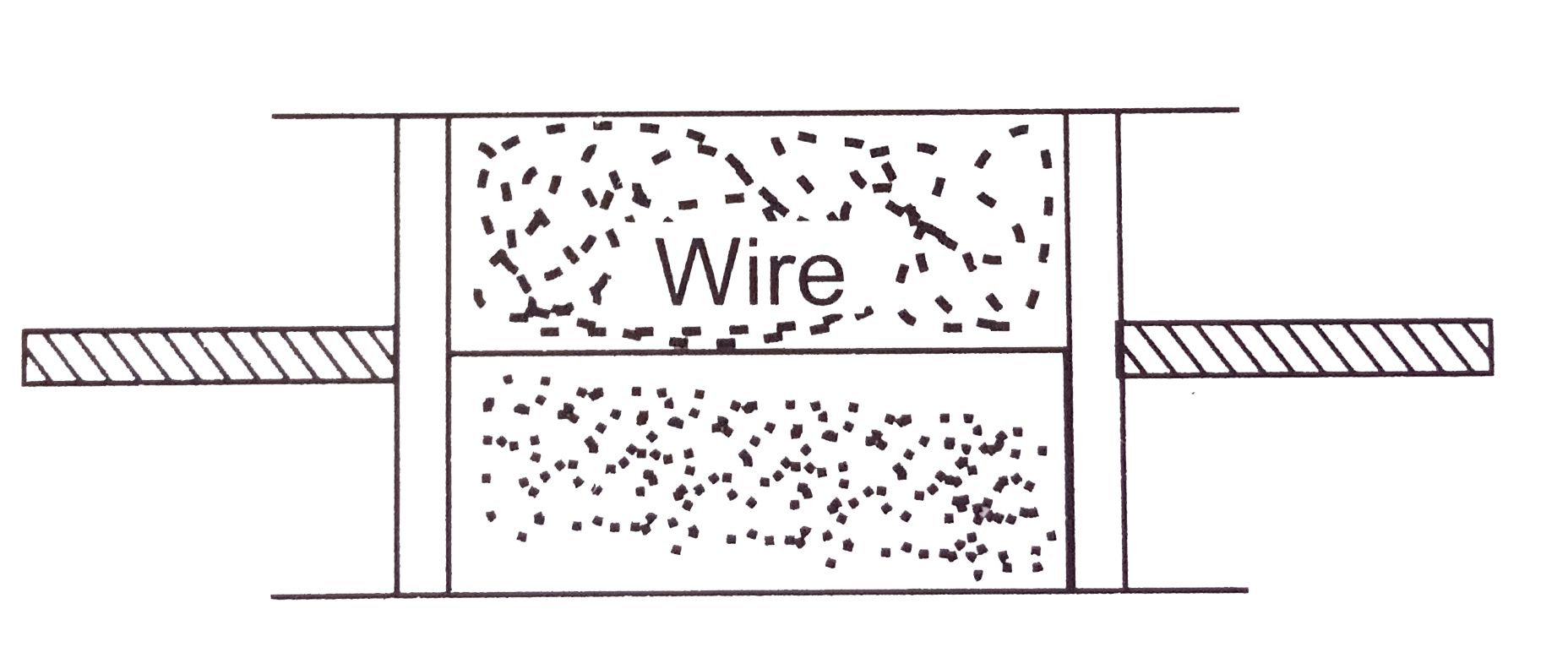
A cylindrical tube of uniform cross-sectional area A is fitted with two air tight frictionless pistons. The pistons are connected to each other by a metallic wire. Initially the pressure of the gas is P0 and temperature is T0, atmospheric pressure is also P0. Now the temperature of the gas is increased to 2T0, the tension in the wire will beView SolutionA potato gun first a potato horizontally down a half-open cylinder of cross-sectional area A. When the gun is fired , the potato slug is at rest , the volume betweeen the end of the cylinder and the potato is V0, and the pressure of the gas in this volume is P0. The atmospheric pressure is Patm. where P_(0)>Patm . The gas in the cylinder is diatomic, this means that CV=5R2 and CP=7R2 . The potato moves down the cylinder quickly enough that no heat is transferred to the gas. Friction between the potato and the barreel is negligible and no gas leaks around the potato . The parameters P0,Patm,V0 and A are fixed, but the overall length L of the barrel may be varied.
_E01_239_Q01.png)
The maximum kinetic energy Emax with which the potato can exit the barrel?View SolutionA potato gun first a potato horizontally down a half-open cylinder of cross-sectional area A. When the gun is fired , the potato slug is at rest , the volume betweeen the end of the cylinder and the potato is V0, and the pressure of the gas in this volume is P0. The atmospheric pressure is Patm. where P_(0)>Patm . The gas in the cylinder is diatomic, this means that CV=5R2 and CP=7R2 . The potato moves down the cylinder quickly enough that no heat is transferred to the gas. Friction between the potato and the barreel is negligible and no gas leaks around the potato . The parameters P0,Patm,V0 and A are fixed, but the overall length L of the barrel may be varied.
_E01_240_Q01.png)
The length Lin this case isView SolutionA uniform cylinder of mass m, length l and cross sectional area A is suspended with its vertical from a fixed point, with the help of a massless spirng of force constant (K), The cylinder is then submerged in a liquid of density p. At equilibrium the cylinder remains submerged in the liquid with 1/4th of its volume outside the liquid, as shown in the figure. The elongation of hte spring at this point is x0. WHen the cylinder is given a slight downward push into the liquid and then released, its starts oscillating with vertical S.H.M. of small amplitude.
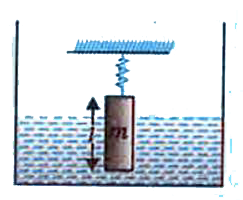
Time period of vertical S.H.M of the cylinder isView SolutionA metal cylinder of density d, cross sectional area A and height h is standing on a horizontal surface. Coefficient of linear expansion of the metal is apha.∘C−1 and its specific heat capacity is S. Calculate the rise in temperature of the cylinder if a heat ΔQ is supplied to it. Assume no atmosphere.
View SolutionA cylindrical tube ofuniform cross sectional area A is fitted with two frictionless pistons, as shown in figure-2.46. The pistons are connected to each other by a metallic wire. Initially the pressure of the gas is equal to atmospheric pressure P0 and temperature isT0. If the temperature of the gas is increased to 2T0, find the tension in the wire.
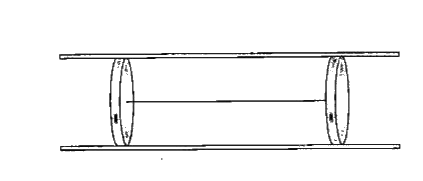 View Solution
View SolutionA uniform cylinder of height h, mass m and cross sectional area A is suspended vertically from a fixed point by a massless spring of force constant k, A beaker full of water is placed under the cylinder so that 1/4th of its volume is submerged in the water at equilibrium position. When the cylinder is given a small downward push and released, it starts oscillating vertically with small amplitude. Calculate the frequency of oscillation of the cylinder, Take, density of water =ρ.
View Solution

